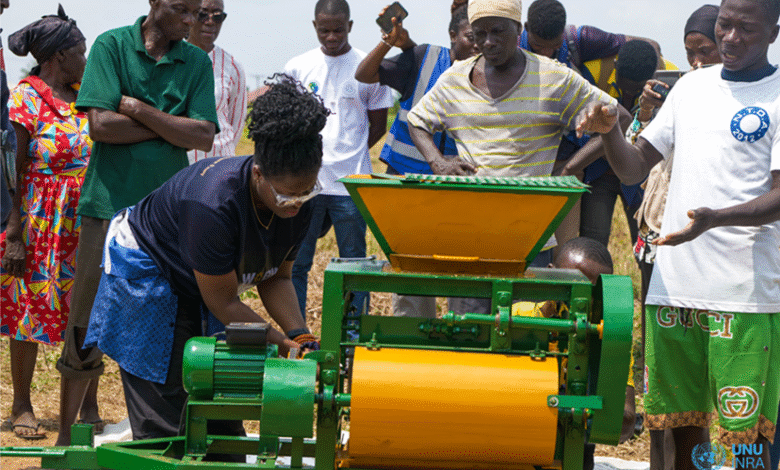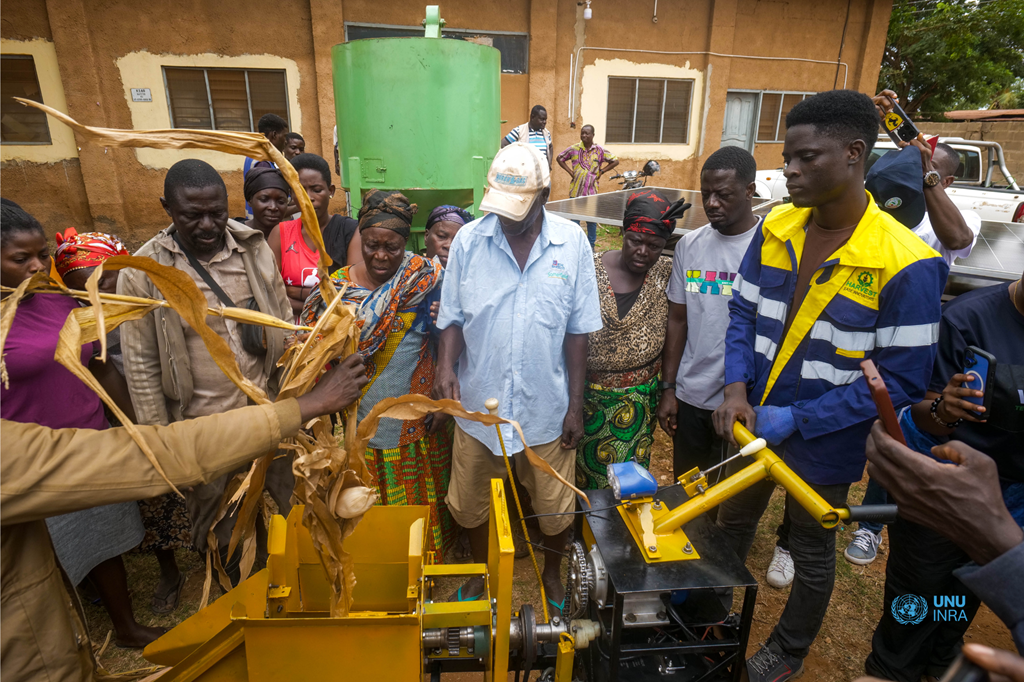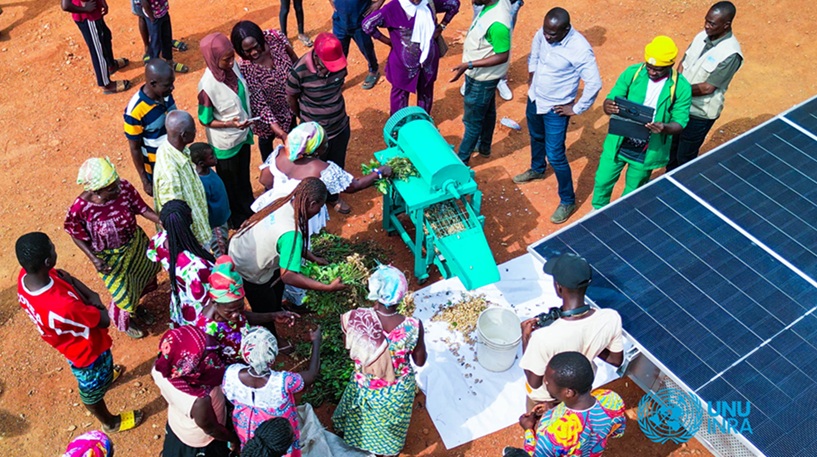Ghana’s Young Agritech Innovators Harness Clean Energy to Transform Agriculture

Ghana’s agriculture sector is undergoing a quiet but powerful transformation—driven not by multinationals or government agencies, but by young homegrown innovators deploying clean energy to solve persistent farming challenges.
Under the United Nations University Institute for Natural Resources in Africa’s (UNU-INRA) Innovate for Clean Agricultural Technologies (INFoCAT) initiative, 10 Ghanaian youth are piloting agritech solutions across the Eastern, Volta, and Central Regions. Their inventions include solar-powered irrigation systems, battery-enabled grain dryers, and cassava processing machines with built-in biogas units.
The pilots will determine which innovations can scale. One standout will secure $37,000 in seed funding, while others may attract additional support in Senegal and Côte d’Ivoire, where similar initiatives are underway.

Why It Matters for Ghana’s Economy
Agriculture remains the bedrock of Ghana’s economy, employing over 30% of the workforce. Yet smallholder farmers still battle post-harvest losses, limited access to affordable technology, and labour-intensive practices. The youth-led clean energy solutions directly address these barriers.
Take the cassava unit: it reduces manual labour, improves processing efficiency, and generates biogas that can power small-scale electricity. Meanwhile, solar dryers could sharply reduce post-harvest losses, which currently erode both farmers’ incomes and national food security.
From Innovation to Enterprise
The broader economic potential is striking. If commercialized, these technologies could spark new value chains in manufacturing, distribution, and maintenance of agritech equipment—creating jobs for Ghana’s youth while empowering smallholder farmers, particularly women, who are being trained to operate and manage the machines.
“This is about showing that young Africans can design solutions that are not only technologically sound but economically viable,” said one project coordinator. “The goal is to move from prototypes to profitable businesses that can scale.”
Positioning Ghana in the Green Transition
Globally, the clean energy market is worth trillions of dollars. By cultivating local innovators, Ghana is not only tackling food security and rural poverty but also positioning itself to tap into global green investment flows. Much like fintech disrupted financial services, agritech powered by renewable energy could generate export opportunities and attract investors eager to back Africa’s youthful talent pool.

Beyond Technology: Building an Ecosystem
The UNU-INRA programme, supported by Canada’s International Development Research Centre, is laying the foundation for a supportive ecosystem. By involving ministries, local assemblies, and private investors, the initiative aims to embed clean agritech innovations into Ghana’s mainstream agricultural economy.
At a time when youth unemployment and climate change are pressing challenges, these efforts show how young innovators can drive resilience, competitiveness, and inclusive growth. The promise of a new generation of agritech entrepreneurs could redefine the future of Ghana’s agriculture—and its place in the global green economy.




